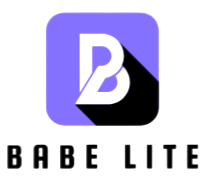Ethical Hacking Course Helps You Identify and Prevent System Vulnerabilities
In today’s increasingly digital world, cybersecurity is more important than ever. Organizations of all sizes rely on complex networks and systems to store, transmit, and process sensitive data. However, this growing dependence on technology has also opened the door to numerous cyber threats and malicious attacks. This is where ethical hacking plays a crucial role. An ethical hacking course equips individuals with the knowledge and tools needed to identify, understand, and prevent system vulnerabilities before malicious hackers can exploit them. These courses provide a structured, legal, and proactive approach to cybersecurity, making them invaluable for IT professionals, business owners, and anyone interested in protecting digital assets. Ethical hacking, also known as white-hat hacking, involves testing computer systems, networks, and applications for security flaws using the same techniques as malicious hackers but with permission and for a constructive purpose. Through an ethical hacking course, learners gain insight into how cybercriminals think and operate. This allows them to anticipate potential threats and act proactively. One of the primary benefits of such a course is the development of hands-on skills.

Participants learn how to perform vulnerability assessments, penetration testing, and risk analysis, using industry-standard tools and methodologies. They are taught how to scan networks, analyze systems, exploit vulnerabilities under controlled conditions, and report findings responsibly. Students learn about the laws governing cybersecurity and how to work within legal frameworks when conducting assessments. This ensures that ethical hackers act with integrity and are trusted by the organizations that employ them. The course content typically covers a wide range of topics, including network security, cryptography, malware analysis, social engineering, and web application vulnerabilities. These areas are essential for a comprehensive understanding of the threat landscape and for building the skills required to secure systems effectively. The knowledge gained through an ethical hacking course is highly applicable across various industries. From finance and healthcare to retail and government, every sector faces cybersecurity challenges. Ethical hackers are in high demand for their ability to test defenses and reinforce them before real attackers can strike.
Another key advantage of ethical hacking training is the emphasis on legal and ethical standards. By identifying weaknesses and providing actionable solutions, they help organizations avoid data breaches, financial losses, and reputational damage. Furthermore, ethical hacking courses offer certifications, such as CEH Certified Ethical Hacker, which enhance a professional’s credibility and career prospects in the cybersecurity field. A corso ethical hacking is a valuable investment for anyone serious about cybersecurity. It not only teaches how to identify and prevent system vulnerabilities but also cultivates a deeper understanding of digital defense mechanisms. With cyber threats evolving rapidly, there is an urgent need for skilled professionals who can think like attackers and act as protectors. Ethical hacking training provides the foundation to do just that, helping individuals and organizations stay one step ahead in the ongoing battle for cybersecurity. As cyber threats continue to escalate in both scale and sophistication, ethical hacking education empowers IT professionals to protect organizations, safeguarding the integrity and confidentiality of digital information in an interconnected world.
